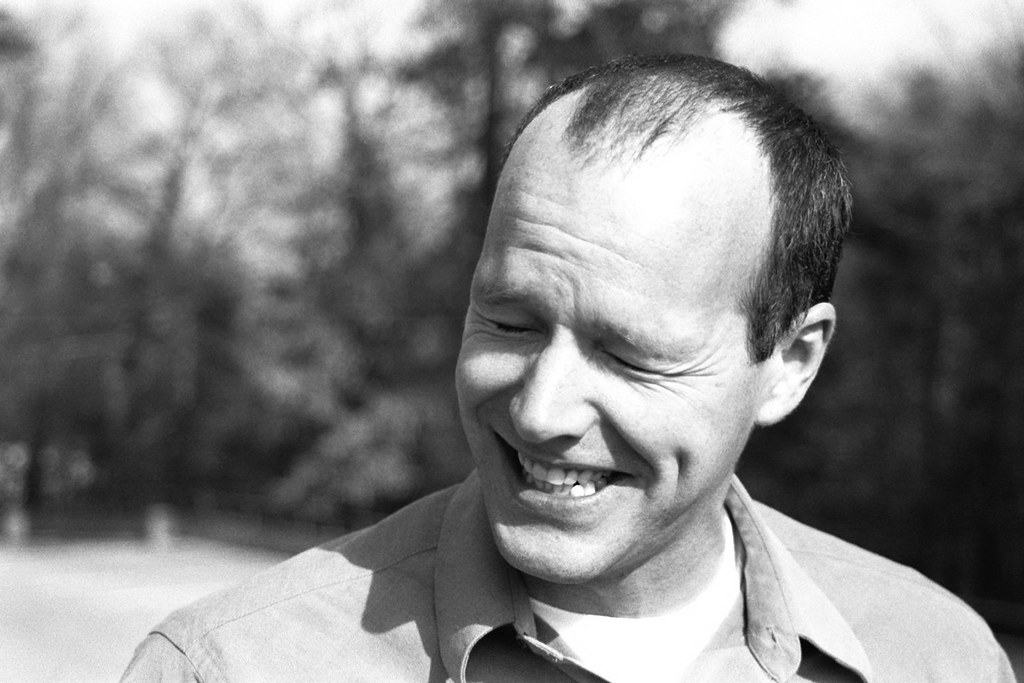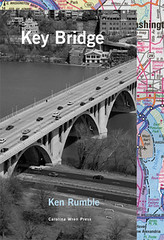Christmas in November: Giscombe & Thompson at the Desert City
Please spread far and wide......
Who: C. S. Giscombe, author of Here, Giscome Road, and Into and Out of Dislocation, Fullbright Scholar, Pushcart Prize Winner, my friend and fellow member of the Pennsylvania 12.
Who: Jon Thompson, author of the just published The Book of the Floating World, editor of Free Verse: A Journal of Contemporary Poetry & Poetics, NC State Professor, mentor to many people who open doors with their left hands.
What: Desert City November reading, sending out 20-04 with a TKOh, baby.
When: This Saturday, November 13th, 8pm, 2004.
Where: Internationalist Books, 405 W. Franklin Street, Chapel Hill, North Carolina, 919-942-1740.
Why: "Love's inarticulate when it does appear: it's just lazy speech -- love talk -- and not specific and you can't exchange it for much." "we know so little but on that / we base everything"
See you there....
*Internationalist Books: http://www.internationalistbooks.org
*Desert City Poetry Series: http://desertcity.blogspot.com
Jon Thompson: http://www.parlorpress.com/thompson.html
Contact the DCPS: Ken Rumble: rumblek at bellsouth dot net
Next Month: January 15th, Saturday, 8pm: Standard Schaeffer & Marcos Canteli w/ Rachel Price
Jon Thompson
"Writing History"
If everything becomes everything else
if every event touches every other event
creates it reverberates through and beyond it
then nothing is inconsequential and history
is both what we are and what we are becoming
a continuous making and unmaking a story of unspeakable
intimacy and unspeakable loss here is a photograph
of winter and dusk and train tracks
and a grimy factory woman who is trying to make her way home
someone who has passed out of one history
into another where the blanks are unfillable
we know so little but on that
we base everything
& the photographer who is about to take her photograph
he does not know her
does not know her reason his own this man who became
the photograph I now hold in my hand how
the blanks & spaces fill the years
how much the body the tired body
the photographed body the figurative body
depends upon them
the spaces that loom larger longer wider
what was it you saw when you glanced up at him
that man who lived in a world which still thought
the world was all in the things you could see
C. S. Giscombe
from Giscome Road
The song's a commotion rising in the current, almost an apparition: or the shape
rises -- obvious, river-like -- in the blood (in the house that the blood made)
& goes on, is the fact of hte "oldest ancestor," in who
name etc description itself persists on out, not like some story into the uplands, on into the stony breakdown, no line
between the old river god & the old man's name coming up along the river & on the road:
an endless invisible present going on, a noise
(with nothing at the other side of it)
. . .
Having wanted to drive out to the edge, right out
to the mutest edge out there,
the mutest edge, the emptiest soundstage,
out to the invisibility there, out
to all that "up" there in Canada that took place up there --
Giscome, B. C. all unincorporated now up
on the Upper Fraser Rd off desolate Rte 16 to Alberta,
off the Alberta-bound road the Yellowhead (for Pierre B---, the blonde Iroquois who'd arrived
at the mountains there at the Alberta end, the source of the road): miscegenation's
the longest nuance, the longest-lasting open secret
(in old B.C., Gov. Douglas was also "a man of colour," "a West Indian
of racially mixed parentage" out at the end of a pier in Victoria, welcoming
"creole," pragmatic
. . .
[Northern Road]
The arrival at the edge of water
some little end of the water come to & breached
(in a stretch forward or as though in a gesture
from, typically, one of so many edges),
a hiatus in the travel by water, the build
of negatives & switchbacks along the same old bank
the edge of a story
the story's same old edge through the new twists, almost
intestinal from all maps of it, knotted --
the edge in the voice, the little edge creeping,
a fast little edge that could have crept into the voices & stayed there
unrelieved 'til the edge was come to of the water itself
(the endless description)
the endlessness of the story breached
at the foot finally
at the root of the trees



0 Comments:
Post a Comment
<< Home